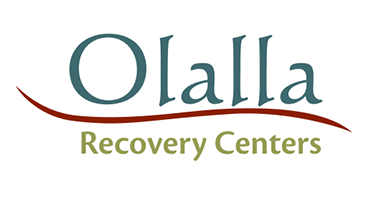
04 Jan Self-Forgiveness
Find Healing and Self-Forgiveness on the Road to Recovery
“Forgive yourself for not knowing what you didn’t know before you learned it.” – Maya Angelou.
No one is perfect. We all make mistakes—it’s part of being human. Yet, despite this universal truth, why is it often so challenging to forgive ourselves? As we explore the concept of self-forgiveness, you discover why it matters and how to navigate this pivotal aspect of the recovery journey.
Understanding Self-Forgiveness
Self-forgiveness is a form of self-acceptance. It’s about acknowledging your imperfections and realizing that your mistakes don’t define who you are. Forgiveness is a deliberate decision not to hold a grudge against someone you believe has wronged you, regardless of what they have done to you. While forgiving others may come more naturally, extending that same kindness to yourself can be a tougher challenge.
Surprisingly, the struggle to forgive yourself is actually your brain’s way of trying to protect you. It thinks that by generating a strong negative response to perceived failure, you’ll be less likely to make the same mistake in the future.
Recognizing feelings of guilt and shame can be daunting, especially in an environment that dismisses your emotions. During addiction, it served as a way to numb your feelings and provide an excuse to avoid or even suppress your conscience.
In the confines of addiction, feelings of guilt and shame become familiar companions. It forms a vicious cycle where you find yourself involved in actions you’d rather avoid or know are harmful. Unfortunately, these efforts overpower attempts to quit, often leading to repeated setbacks. Breaking free from this cycle is essential for recovery, but it won’t happen through shame. In fact, it can trap you further, making you believe overcoming addiction is an impossible feat.
Why Self-Forgiveness Matters
Low self-esteem and a lack of self-forgiveness can trigger a cascade of negative emotions, undermining the recovery process and potentially leading to a relapse. The internal dialogue of “I’m no good, why bother to change?” is a common struggle for those battling addiction, fueling a cycle of shame and guilt.
Forgiving yourself in recovery can be more complicated than forgiving others. It involves facing the reality of the past, addressing the problem, and dealing with your emotions. In sobriety, your past mistakes don’t disappear, but you don’t need to carry the burden of shame and regret throughout your life. Navigate beyond these negative emotions and pave the way for a positive, healthy future through the cathartic power of forgiveness.
The Difficulty of Self-Forgiveness
Learning to forgive yourself is challenging because we often hold ourselves to a higher standard. Resentment, especially after trauma, can be challenging to process. Clinging to resentment piles up past experiences, fostering bitterness and negativity. It’s essential to adopt forgiveness to starve resentment of its fuel.
These emotions have a purpose and might set the stage for positive change down the line. Recognizing and accepting your feelings is an important step in the forgiveness process. They don’t have to control or define you. It’s also about giving yourself the compassion you deserve and understanding that you can change and grow.
How do you go about forgiving yourself, or at least try? It’s about recognizing that you made a mistake, learning from it, and then letting go of the guilt and shame. Shame says something is wrong with ‘who I am,’ while guilt says something is wrong with ‘what I did.’ Not only is self-forgiveness helpful for moving on from hurtful behavior, but it may also help reduce levels of anxiety, depression, and relationship strain. Forgiveness brings a certain peace that allows you to focus on yourself and lets you go on with life.
A typical approach in therapy involves going through the four steps of self-forgiveness.
The 4 R’s of Self-Forgiveness
-
-
- Responsibility: In this step, it’s all about realizing that you have the option to forgive yourself. Taking that step can help you let go of the thoughts and feelings you’ve been carrying. Be aware and open to the insights about past stuff that’s been bothering you. You may be inclined to blame yourself entirely for something when the responsibility was shared or avoid accountability when you were in the wrong. Extreme ends of the spectrum won’t allow for an honest assessment. You may be grappling with a blend of emotions and unspoken thoughts, but letting them go is essential. Recognize that you deserve this healing journey and are worthy of self-love and self-respect.
- Remorse: This step involves recognizing the hurt you may have caused and gaining a deeper understanding of your past actions or role in an event. Approach it with a willingness to see it as it is and accept any mistakes on your part while expressing those feelings. This can help you move toward healing and give yourself the compassion you deserve.
- Restoration: At this stage, an important part of forgiving yourself is to make amends for your mistakes. By taking action to repair any damage and identifying repeated behavior, you can learn to recognize and prevent it from happening again. By offering a genuine apology, you can avoid the pain of looking back and wishing you had done more to make things right. It’s important to remember that taking responsibility, apologizing, and making things right can help us find closure and move forward.
- Renewal: Embrace self-compassion, learning, and allowing yourself to grow from your experiences and a greater understanding of your personal values and self-acceptance. What we learned from all of our past experiences serves us in the moment we are in right now. Now, it’s about letting go, stepping into today, and acknowledging that you’ve got the wisdom and experience to navigate things differently moving forward.
-
Incorporating the 4 R’s into your daily routine in recovery, making it a practical aspect, can offer increased strength and resilience. Granting yourself forgiveness is liberating, releasing the negative energy that held you back during addiction. It’s a crucial step towards healing and moving forward positively. Forgive yourself and understand that you deserve to reach your full potential, form meaningful friendships and relationships, and experience the mental well-being benefits of letting go of negative emotions.
GET HELP NOW
Remember, Olalla Recovery Centers is here for your addiction recovery journey. If you or a loved one is ready to seek assistance for an addiction, the first step is to seek a professional who can help. Call or contact us anytime. For Inpatient/Residential Treatment 1-888-956-7913; For Outpatient Treatment 253.851.2552


